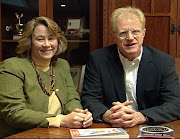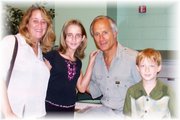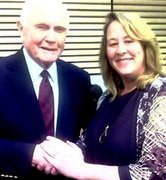In regards to the December 22 article in The Columbus Dispatch Newspaper titled: "Study says patients can't hold off death, but stories disagree"
The study published in the Journal of the American Medical Association, by Ohio State University biostatatistician Donn Young, examined 309.221 death certificates and found "no difference in the number of patients who died before or after" the milestone dates of Christmas, Thanksgiving, or birthdays.
The story seems to imply that although there are many stories of terminally ill people who have held on longer that expected, that the data does not support the notion that there is an element of individual will power or control over the time of death.
I doubt the validity of this conclusion. I would argue that if you were to extract the patients from the study who did in fact live beyond the milestones, and then look into the qualities that these rare individuals have in common, I am quite certain that you will find a correlation between the extended time of life and the personality type.
I predict that these people will share qualities that are often seen in highly successful individuals.
Positive Attitude
Ability to visualize through prayer or meditation
The ability to think from the end; To visualize the future move towards it.
Hope
Successful record of accomplishments
I also predict that the percentage of people who beat the odds will correlate to the percentage of people in the general population who are highly successful in life. It might also correlate with the percentage of people who survived the Nazi Death camps, as discussed in the works of Victor Frankl.
Think of it this way: If you were to take a poll and ask 1000 people if they would like to have a degree from an Ivy League school, and the job security and status that goes with it, I imagine that most, if not all the respondents would say yes.
However, the fact is that only a very small segment of the population will actually focus on achieving this goal. This does not in any way imply that the average person can not achieve this goal, nor does not imply that a person has no control over the outcome.
The truth is in fact quite the opposite. Achievement of this goal is obtained through a high degree of control and effort that only a select few people have learned to generate.
This study tells me what I already know: That wishes alone are powerless.
Miracles are only created through a recipe of focused intent that very few people know how to harness.
Viktor Frankl’s theory and therapy grew out of his experiences in Nazi death camps. Watching who did and did not survive, he concluded that the philosopher Friedrich Nietzsche had it right: “He who has a why to live for can bear with almost any how. "
Look into his research and you will find that ALL prisoners in the camps wished to live and be free, but only a very few could visualize from the end, and see hope in the future. This is the quality that set them apart.
This study, although well intentioned, uses the universities credibility and position to remove hope, which is a shame because the conclusion is flawed.
I suggest the researchers go back and look at the population that beat the odds and use their talents to find out why. This is a quest worthy of limited research dollars.





























No comments:
Post a Comment